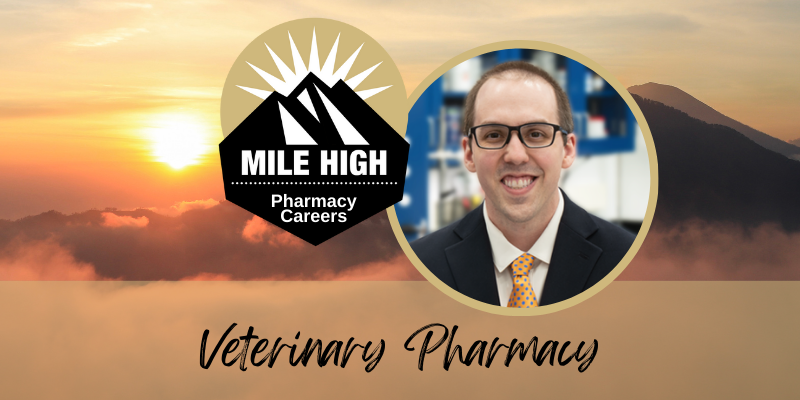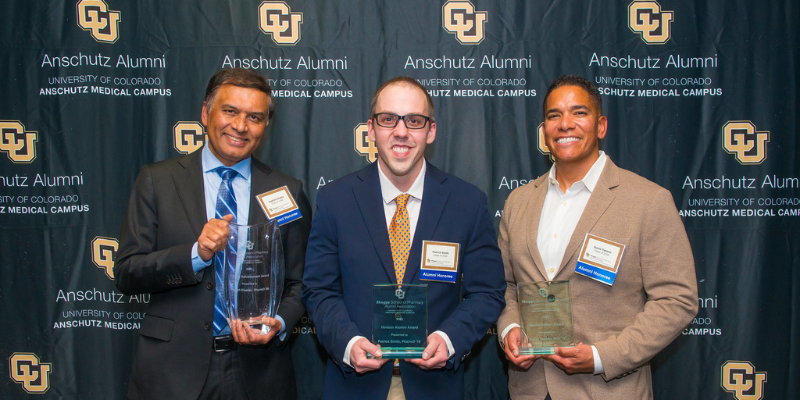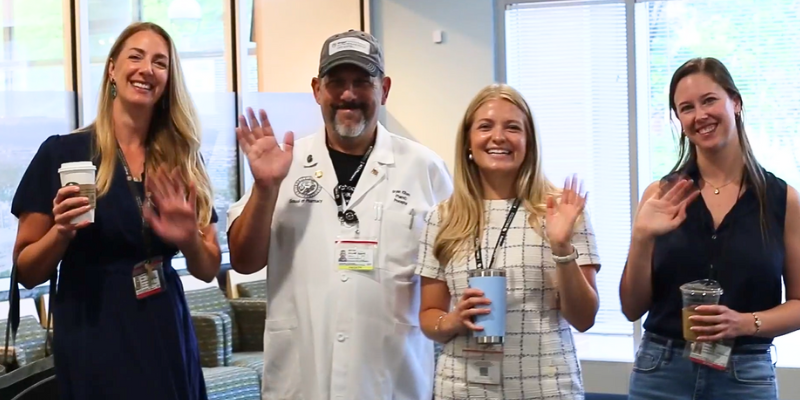What are you currently doing as a pharmacy professional and how did you progress to where you are today?

|
Dorothy Agyemang, PharmD '23
|
In my current role as a Post-Doctoral USMA Oncology Fellow at GSK, I’m deeply involved in oncology medical affairs, focusing on gynecologic oncology, including treatments for ovarian and endometrial cancers. My day-to-day includes a mix of strategic and hands-on tasks. I collaborate with internal teams, lead stakeholder engagements with Key Opinion Leaders (KOLs) and External Experts (EEs), and develop training programs for both internal teams and field medical teams.
I also play a key role in synthesizing clinical trial data and translating that into actionable insights that inform medical strategies. I’ve been able to lead conference planning, such as at SGO, and I’ve worked on creating training content and strategic plans for upcoming medical initiatives. My journey to this position started with my PharmD from the University of Colorado, where I focused on oncology, and evolved into this medical affairs role because I realized I wanted to make a broader impact on patient care through medical strategies and scientific communication, rather than just in a clinical setting. I’ve grown from patient care to working behind the scenes in the pharmaceutical industry, where I’m helping shape treatments and improving access to oncology therapies.
What is different about the person you are today compared to the person you were while in school?
The person I am today is much more strategic and results-oriented compared to who I was in school. When I was in school, I was heavily focused on the technical side of pharmacy—learning drug therapy management and clinical skills and really diving deep into research. But now, I see the bigger picture. Instead of just focusing on clinical care at the patient level, I’m looking at how to improve healthcare on a larger scale, collaborating with teams to develop strategies that impact not just individual patients, but populations.
I also have more confidence in my ability to lead and make decisions. In school, I was always trying to learn as much as I could, but now I’m in a position where I’m guiding teams, making important decisions, and working directly with external experts to shape strategies for oncology treatments. I’ve learned to balance technical knowledge with practical, real-world applications, especially in medical strategy and communication.
What has been a defining moment for you as a seasoned professional?
A defining moment in my career was the opportunity to work on the development of an innovative dashboard tool for tracking oncology data, which ultimately helped improve operational efficiency across our team. The tool allowed us to monitor and analyze data more effectively, enabling better decision-making. It was incredibly rewarding to see it become a resource that was later adopted across multiple therapeutic areas, enhancing data visibility and cross-functional collaboration.
In addition to that, another key moment came from working with various research networking centers, which opened my eyes to the need for greater diversity in clinical trials. I had the chance to engage with experts and stakeholders who highlighted this gap, which led me to develop a strategy to address the issue. Since then, increasing diversity in clinical trials has become a priority project of mine, and it’s something I’m actively working on.
I’m excited to see how this ongoing project will unfold, and I can’t wait to see the impact it will have on clinical research, ensuring that treatments are more accessible and relevant to diverse populations. The combination of improving operational processes through data tools and addressing such an important issue in clinical research has been incredibly fulfilling for me.
What inspired you to attend the CU Pharmacy program and what was your experience while in the program?
Honestly, one of the big factors that drew me to the CU Pharmacy program was the opportunity to attend an in-state school, which meant I could benefit from in-state tuition. It was a huge plus for me financially, and it ended up being a great choice overall.
What really inspired me, though, was the program’s strong reputation and the chance to dive deep into pharmacy while also getting hands-on experience. Throughout the program, I got a solid foundation in pharmacy and the therapeutic areas I was most interested in, especially oncology. The blend of rigorous coursework and real-world application made a huge difference for me. I also loved the collaborative environment—working with peers, faculty, and mentors who were genuinely passionate about the field really helped shape my own aspirations.
I was fortunate to learn from some truly incredible mentors at CU, like Dr. B, Dr. Kaiser and Dr. Saseen, whose expertise in pharmacotherapy really broadened my understanding and passion for the field. And on top of that, I received professional guidance from Laurie Sein, whose advice and support were invaluable in helping me shape my career path.
The CU Pharmacy program gave me more than just the technical knowledge; it opened doors to medical affairs, which ultimately led me to pursue a career in oncology. I couldn’t have asked for a better launchpad for my career.
What is your proudest moment and your favorite thing about working in the pharmacy profession, and how are you making a difference in your career?
One of my proudest moments is knowing that the work I’m doing in oncology has the potential to help not only people here in the United States but globally as well. The impact of the drugs I’m working on at GSK is far-reaching, and it’s truly fulfilling to be part of something that has the power to improve the lives of cancer patients worldwide.
Another source of pride for me is knowing that my contributions can make a difference in my home country of Ghana. Being able to apply my expertise in oncology and medical affairs at a global level gives me hope that one day the community back home will also benefit from the advancements we’re working on, whether through improved access to medications or through the knowledge I can share.
My favorite thing about working in pharmacy is the chance to help shape the future of healthcare and contribute to improving patient outcomes. Knowing that my work directly impacts patient care and that I’m part of a larger effort to advance science and treatment options keeps me motivated and passionate about what I do every day.
What sage advice would you pass on to current and future students that was helpful for you in preparing for the job market?
If I could offer one piece of advice, it would be to embrace opportunities outside of the classroom. While clinical knowledge is important, I found that some of my best learning came from internships, fellowships, and research experiences that gave me real-world exposure to the field. Don’t be afraid to network and build connections with people in various sectors of pharmacy. The more diverse your experiences are, the better equipped you’ll be to navigate different career paths.
One thing I’d also say is that, while the pharmacy field, especially pharma, isn’t always talked about enough at CU, there’s so much to learn about it if you take the initiative. The curriculum may not dive deep into pharma specifically, but there are plenty of resources and opportunities to explore this career path on your own. I strongly encourage students to actively seek out ways to learn about the pharmaceutical industry, whether that’s through networking, attending industry events, or seeking internships and fellowships.
Lastly, don’t underestimate the power of continuous learning. Pharmacy is a constantly evolving field, and keeping up with new advancements in treatments, research, and technology will make you stand out. Also, don’t rush—take your time to explore your interests and find a career path that truly aligns with your passions. The job market is competitive, but if you stay focused, keep an open mind, and stay curious, you’ll find your way.







